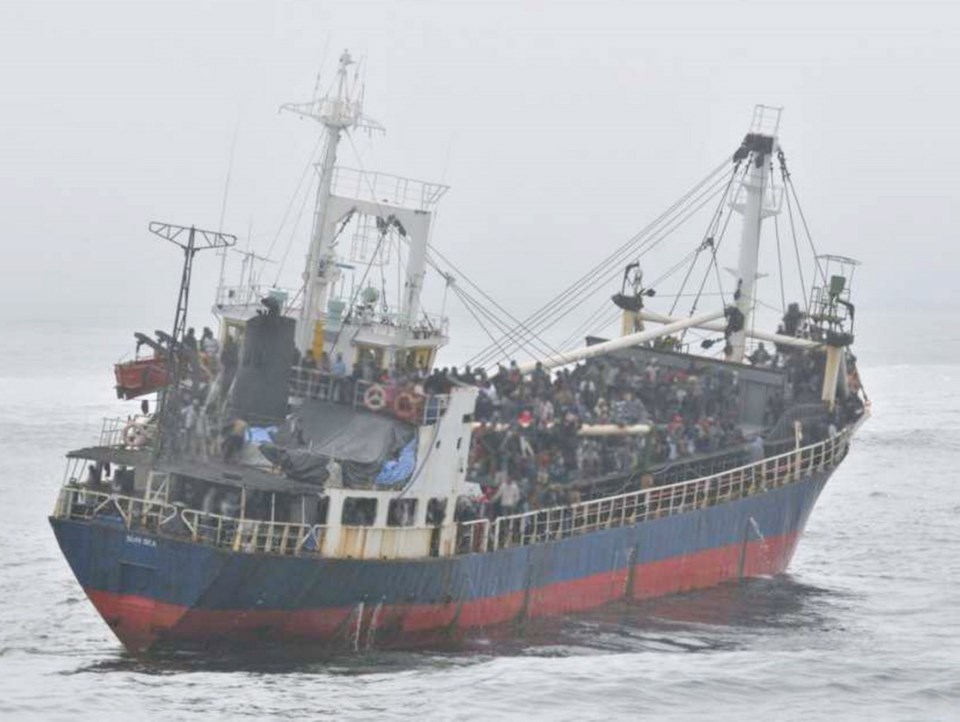VANCOUVER — A Crown witness at the trial of four men charged with smuggling hundreds of Tamil migrants into Canada testified Monday that he initially denied he had helped the Tamil Tigers terrorist group out of fear it would jeopardize his refugee claim.
Sasikumar Kanthappillai was one of 492 Sri Lankan Tamils who were aboard the MV Sun Sea when the rickety vessel arrived off the coast of Vancouver Island in 2010 after a journey across the Pacific Ocean from Thailand.
The vessel was escorted by Royal Canadian Navy ships to Canadian Forces Base Esquimalt.
Under cross-examination, he told a jury that in his first few interviews with the Canada Border Services Agency, he had said he had no prior contact with the Tamil Tigers, a group that was outlawed in Canada in 2006.
“You were very concerned that may affect your refugee application,” said Mark Nohra, a lawyer representing one of the four accused.
“Yes,” Kanthappillai said.
The witness said that in a subsequent interview with the border agency officials in October 2010, he told officials that he in fact had helped the Tamil Tigers and that what he had said previously was untrue.
The admission came after CBSA officials questioned him about an email account that included attachments about fallen Tiger heroes, he said.
“You were untruthful initially because your refugee status was important to you?” said Nohra.
“Yes,” said Kanthappillai.
“It was a matter of life and death?” said the defence lawyer.
“Yes,” replied the Crown witness.
Kanthappillai, who told the jury that he is still awaiting a decision on his refugee claim, said that he had signed a contract with the rebel Tamil Tigers to help them for seven years and had gone through extensive training, including weapons training and training in a commando unit.
He testified that eventually he had assumed a role with the Tamil Tigers to make bombs that were hidden in the ground and used to explode vehicles and people.
The witness said that he later spent three to four years teaching other soldiers how to make bombs, an occupation that exposed him to dangerous chemicals that had a serious impact on his health.
The chemicals destroyed nerves in the back of his neck and affected his brain function, with symptoms including a loss of memory and severe pain, he said.
His condition got worse, requiring psychological treatment at one point, but his superiors refused to allow him to stop teaching other soldiers how to build bombs.
“I couldn’t eat. I couldn’t get proper sleep. I couldn’t do my work. I was in hospital.”
Nohra, who is representing an accused named Nadarajah Mahendran, questioned Kanthappillai about a battle between the Tamil Tigers and the Sri Lankan army, where a number of the army soldiers were executed.
The witness said that he was present at the scene of the execution and had an AK-47 rifle with him, but did not use it.
He admitted that questions surrounding his role in the battle are a big issue in his application.
Crown counsel Charles Hough objected to Nohra asking a question about what was done to dispose of the bodies from the execution and objected to him asking the witness whether the CBSA had gone so far as to say he’d committed war crimes.
The trial continues.



-thumb.png;w=120;h=80;mode=crop)